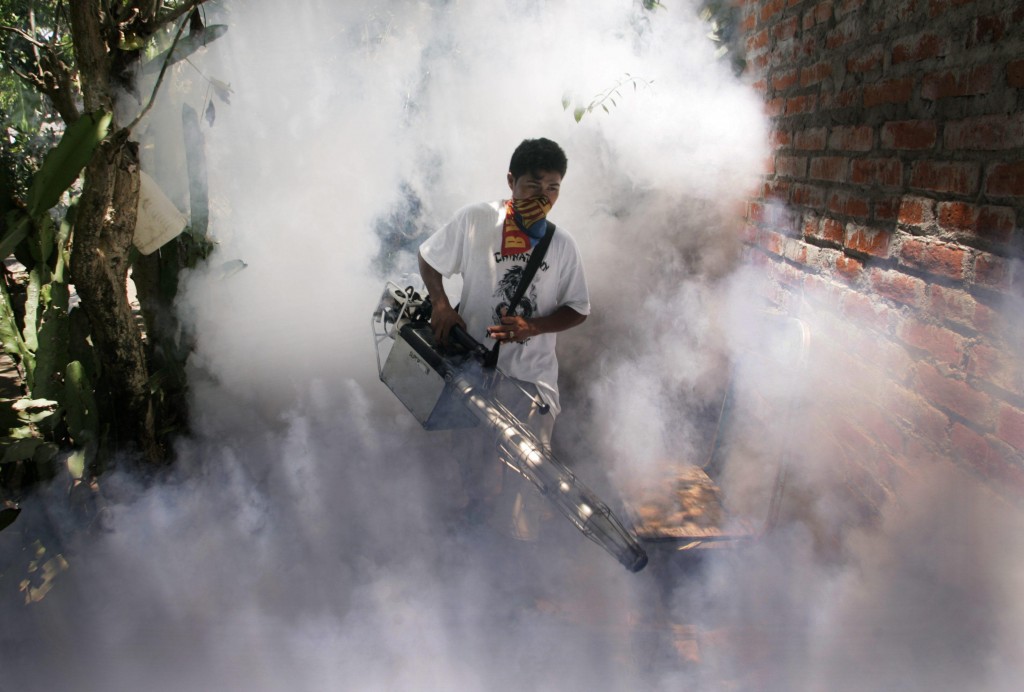While Costa Rica prepares for its annual high-season, store fronts reopen, restaurants become chaotic, and tourists flock to the elegant beachfront hotels of Guanacaste. Despite the surplus of business and affluent tourists, a devil lurks within the most peculiar of places: the Aedes mosquito.
With globalization on the rise, infectious, virulent diseases have become an increasing problem, causing previously extinct diseases to resurface and others to become virtually uncontrollable. Dengue has reemerged in the last decade and has been raving havoc upon the inhabitants of Costa Rica. With over 100 cases seen this week in the Tamarindo area alone, dengue is certainly turning heads and making a name for itself in the viral-borne world. Though dengue has become one of Costa Rica’s most prominent vector-borne diseases, few precautions have been taken to avoid infection.
Although the Ministry of Health (MOH) is the organization that handles, manages, and investigates health complications, they have failed to provide Costa Rican inhabitants with proper preventive measures.
In accordance with Municipality of Santa Cruz, mosquito-preventive sprays are only occurring after a case has been confirmed in an area, leaving thousands of people at risk. A tactic which professional fumigation expert, Leo Perron, find useless, “Personally, I believe it is totally inefficient. That smoke kills almost nothing, it chases the mosquitos away for awhile, but they come back after an hour or so.”
Currently there is no vaccination to protect oneself from exposure, but there are measures that can be used to prevent the disease from consuming a patient’s health. Removing oneself from mosquito vulnerable situations is the first and foremost action one can take to avoid exposure to dengue. Remaining inside a home two hours before sunrises and sunsets, avoiding standing water, and liberally applying mosquito repellent will decrease your chances of a bite.
The incubation period of dengue lasts roughly fifteen days, a period in which patients normally reveal signs of high fever, headaches, weakness, and skin rashes. “When I see these types of symptoms, I immediately administer a blood test. My dengue patients are suffering from a loss of blood platelets and faltering immune systems,” Dr. Amanda Robles said in a recent interview.
According to Dr. Amanda Robles, sustaining a healthy immune system and leading a healthy lifestyle are two of the easiest ways to prevent dengue, “We cannot compete with the fact that mosquitos are present and that they will bite us. If you keep a strong immune system and live a healthy life, your chances of infection are considerably lower.”
Dengue is a vector-born disease, meaning, it can strike at any moment. A disease which was once only detected during the wet season is now appearing year-round. The mass dispersion and mutational perseverance of the Aedes mosquito has allowed it to become permanently relentless.
Unfortunately, the Aedes species of mosquito prefers to dwell in close proximity to human environments. “They’ve adopted an inclination to prefer human blood, and commonly breed in water-bearing containers such as, flower pots, vases, and trash bins,” says Dr. Ivan Mendez.
Admittedly, the number of dengue cases is considerably lower than last year, a number that is a direct reflection of the extreme drought that hit the Guanacaste region earlier this year. There were nearly 50,00 confirmed cases of dengue by the end of 2013, while only 9,692 have been recorded as of November 19, 2014 (Ministerio de Salud, Santa Cruz).
This tremendous decline of dengue is a result of the minimal rainfall seen in Guanacaste this past season. With fewer spawning areas, the Aedes mosquito becomes less threatening to Ticos, ultimately allowing preventive measures to have a greater impact.
As Ticos become more aware of the consequences that accompany a mosquito bite, fewer cases of dengue will surface. “Dengue is a strong virus that humans need to evolve from. Twenty years ago, people didn’t know about it (dengue), but cases were still out there. As information builds and people become more knowledgable, we are seeing less cases. In a decade or so, when our immune systems have become resilient to the virus, there will be significantly fewer infections,’ says Robles.
By Jason Findling
